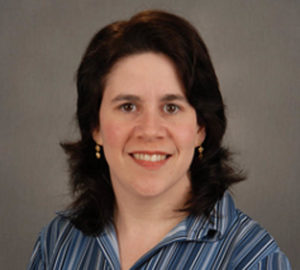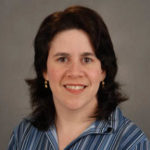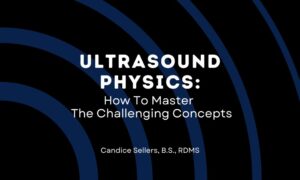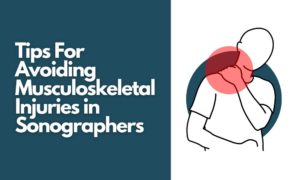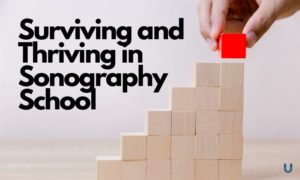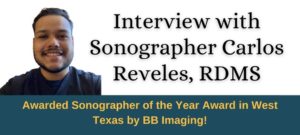Dr. Traci Fox EdD, RT(R), RDMS, RVT has been a sonographer for over 20 years, but she’s been intrigued by the sciences since grade school. She earned her Bachelor and Masters of Science degrees from Thomas Jefferson University, and her Doctorate in Education from Drexel University.
Currently she is a full time Diagnostic Medical Sonography professor at her alma mater, Thomas Jefferson University. Before that she worked at Thomas Jefferson University Hospital, where she taught, researched, and worked with Dr. Barry Goldberg, “one of the biggest names in ultrasound.” Ultrasound Schools Info had the chance to chat with Dr. Traci Fox by phone in December 2017.
My mother had an ultrasound, and she described it to me, and it sounded interesting. I did some research in the days before the Internet, so it wasn’t quite as easy to do research on the subject. But I did some research and it had technology and medicine, and that’s what drew me to the field.
Yes. I worked in hospitals doing … general ultrasound, vascular ultrasound and high risk obstetrics.
I would say (students) have to have a passion for it. Don’t do it because you heard it pays well, don’t do it because somebody told you that there’s a lot of jobs in it…It has to be something where you’ve done the research, you know what the field involves and you say “Yeah I can see me doing that”.
Oh all the time. That’s the standard life of a sonographer. I mean our job is to be the detective. We’re supposed to take a bunch of clinical symptoms and look at whatever body part we’re supposed to look at, use clinical thinking to evaluate the patient’s clinical presentation…. With the physical exam we might need to do on the patient, we put those pieces of the puzzle together with the ultrasound picture.
Well yes, as I just said to my students earlier today: “If I don’t take a picture of something that’s potentially life threatening, the patient could go home and die.”
Oh absolutely – essential for a lot of reasons. One of the reasons is there is no ionizing radiation, so to that extent we’re safer than some of the other modalities that can be used for imaging. We’re less expensive…and you know we’re reproducible. We can repeat the exam if necessary again without worrying about radiation or toxic contrast agents and things like that. So there are definite benefits to ultrasound over some of the other imaging modalities.
Learn more about how ultrasounds work, and how the technology compares to other types of medical imaging.
Yes, I love it. You love taking these new students who have never seen any of this before – it’s all brand new – and watching the transition as they go from green students to fully developed professionals after one to two years of training, depending on which pathway they took.
Yes. I was there in 2015 as part of what was called the University Immersion Program. They do a summer program at Sichuan University where the students take this two-week course where professors from around the world come in. So I was teaching the West China Medical students ultrasound physics, among other things. I did a bunch of topics that were all ultrasound-related. And this year [2017] I went back to China again for another reason – there were a couple meetings and things like that. And then most recently, a couple weeks ago, I was in Dubai giving an OB-GYN course. So I get around.
As my department chair and I were discussing, when I travel I’m not just “Traci Fox”, I’m ‘Traci Fox from Thomas Jefferson University.” So I’m representing Jefferson. I like that part of it where I get to say this is what Jefferson has to offer, and talk about our university and our hospital. Basically I’m like an ambassador.
I personally don’t have any research going on at the moment under my name…My focus used to be working in the research area when I worked over [at the hospital]…Now that I’m over here in the university I don’t have as much time…but sometimes they’ll still ask me to help out with different research. Most of the research we do is cancer-related using ultrasound contrast agents to diagnose and to stage… but mostly to follow treatment to see if the treatment is working or not.
Yes, that’s what my doctorate was based on – the pedagogy for the health professional educator. So talking about the flipped classroom for example, the fact that we shouldn’t be lecturing to our students, we should be doing interactive things to get them to use critical thinking skills and things like that.
I would say they have to have a passion for it. Don’t do it because you heard it pays well, don’t do it because somebody told you that there’s a lot of jobs in it…It has to be something where you’ve done the research, you know what the field involves and you say “Yeah I can see me doing that.” If you want to get into the profession, know about it. If somebody asks you, “What does a Sonographer do?” have an answer. If you can shadow, which is near impossible to do unfortunately, try and shadow. And do well in whatever pre-requisites you need, because if you don’t work hard at that, you’re not going to survive an ultrasound program.

